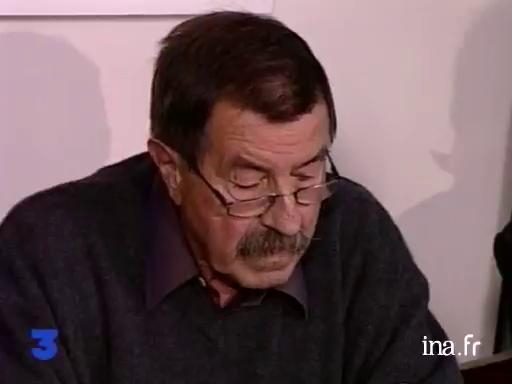Günter Grass, Nobel Prize in Literature

Information
In Stockholm, the 96th Nobel Prize in Literature was awarded to German writer Günter Grass, an opportunity to paint a portrait of this committed man who is a witness to the history of his country, Germany.
Context
Günter Grass was born in 1927 in Dantzig (Germany, today Gdansk, Poland). Enrolled in the Hitler youth and then in the Waffen-SS, he was imprisoned by the Americans. Freed in 1946, he discovered the horrors committed by the Nazis. Firmly positioned to the left, he led a bohemian life in West Germany where he studied painting and drawing.
Close to the Groupe 47, he started to write poetry and theatre pieces. Between 1956 and 1960, he won a scholarship from the Groupe 47 and left for Paris to finish writing his novel, The Tin Drum, published in 1959: the story of a child who in 1930s Germany refused the world of adults and stopped growing up. In Paris he met with intellectuals in St Germain des Près and discovered the Nouveau Roman. In the 1960s, he was politically active alongside the Social Democrats. An active member of the SPD, he distanced himself from it in the 90s. That was the moment when he provoked strong controversy with the publication of A Broad Field (Ein weites Feld, 1995). In this loaded essay, he accuses the ex-Federal Republic of Germany of having sacrificed the ex-German Democratic Republic on the altar of liberalism. In 1999, Gunter Grass received the Nobel prize for literature.
However, in 2006, he revealed his past as having voluntarily enlisted in the Waffen-SS. This late confession, from an active leftist intellectual, caused uproar. Lech Walesa disowned him. Now the quarrels have subsided, today Günter Grass is largely recognized for his political and literary work. The film adaptation of The Tin Drum by Volker Schlöndorff won the Cannes Festival Palme d'Or in 1979.




